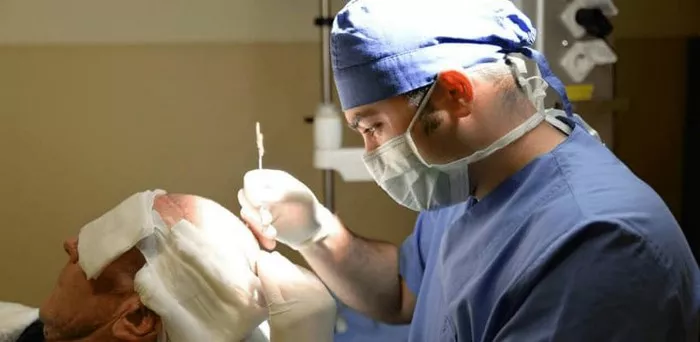Hair loss can be a challenging experience, impacting one’s confidence and self-esteem. For individuals considering hair restoration surgery, a common question arises: Does insurance cover hair transplant procedures? The answer to this question involves understanding the factors that influence insurance coverage for hair restoration and exploring alternative financial options for those seeking to address their hair loss through surgical means.
I. Factors Influencing Hair Transplant Insurance Coverage:
Medical Necessity: Insurance coverage for hair transplant surgery is often contingent on whether the procedure is deemed medically necessary. If hair loss is a result of a medical condition, such as alopecia areata or scarring from trauma or surgery, there may be a case for medical necessity. However, cosmetic reasons alone may not meet the criteria for coverage.
Underlying Medical Conditions: Insurance companies typically assess coverage based on the underlying medical conditions contributing to hair loss. If the hair loss is a symptom of an underlying medical issue, such as hormonal imbalances or autoimmune disorders, addressing the root cause may increase the likelihood of insurance coverage.
Documentation and Medical Records: Thorough documentation of the medical necessity for hair transplant surgery is crucial. This includes detailed medical records, diagnosis of the underlying condition, and documentation from healthcare professionals supporting the need for the procedure. Without proper documentation, insurance claims for hair restoration may be denied.
II. Alternative Financing Options for Hair Transplant Surgery:
Healthcare Financing Plans: Some healthcare financing companies offer specialized plans for elective procedures, including hair transplant surgery. These plans provide individuals with the option to pay for the procedure over time, making it more financially manageable.
Flexible Spending Accounts (FSAs) and Health Savings Accounts (HSAs): Contributions to FSAs and HSAs are made pre-tax and can be used for qualifying medical expenses. While hair transplant surgery for cosmetic reasons may not be covered, if the procedure is deemed medically necessary, individuals may be able to use funds from these accounts.
Personal Loans and Credit Cards: For individuals without access to specialized healthcare financing, personal loans or credit cards may be viable options. However, it’s essential to carefully consider interest rates and repayment terms, ensuring that the chosen financial option aligns with one’s budget and financial goals.
III. FAQs on Hair Transplant Insurance Coverage:
Q1: Is hair transplant surgery covered by insurance for cosmetic reasons?
A1: In most cases, insurance does not cover hair transplant surgery solely for cosmetic reasons. Coverage is more likely if the procedure is deemed medically necessary due to an underlying medical condition contributing to hair loss.
Q2: What medical conditions may qualify hair transplant surgery for insurance coverage?
A2: Medical conditions such as alopecia areata, scarring from trauma or surgery, and underlying hormonal imbalances or autoimmune disorders may qualify hair transplant surgery for insurance coverage. Thorough documentation and support from healthcare professionals are essential for a successful claim.
Q3: Can I use Flexible Spending Accounts (FSAs) or Health Savings Accounts (HSAs) for hair transplant surgery?
A3: Contributions to FSAs and HSAs can be used for qualifying medical expenses, including hair transplant surgery if it is deemed medically necessary. However, cosmetic procedures may not qualify for these accounts.
Q4: Are there financing options specifically designed for hair transplant surgery?
A4: Yes, some healthcare financing companies offer specialized plans for elective procedures like hair transplant surgery. These plans provide individuals with the flexibility to pay for the procedure over time, making it more accessible.
In conclusion, the coverage of hair transplant surgery by insurance largely depends on the medical necessity of the procedure. While cosmetic reasons may not qualify for coverage, underlying medical conditions contributing to hair loss may increase the likelihood of insurance approval. For individuals exploring hair restoration options, understanding the factors influencing insurance coverage and exploring alternative financing options are crucial steps in the decision-making process.

